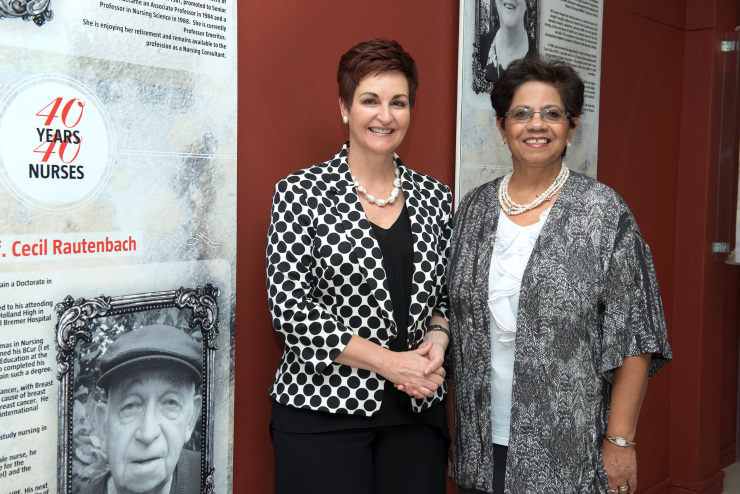 Prof Dalena van Rooyen and Prof Esmeralda Ricks
Prof Dalena van Rooyen and Prof Esmeralda Ricks
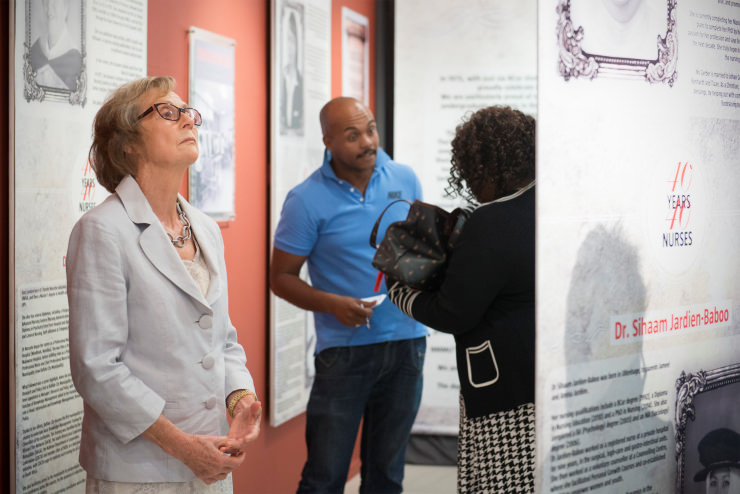 Guests viewing exhibition in honour of 40 nurses
Guests viewing exhibition in honour of 40 nurses
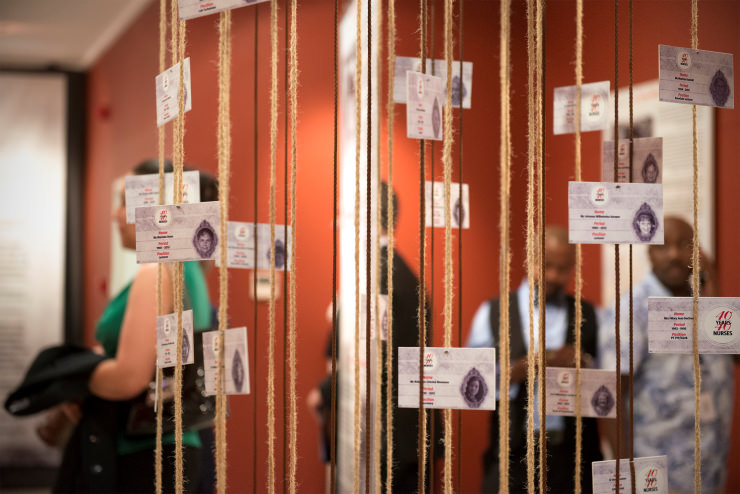 Ex-staff members display
Ex-staff members display
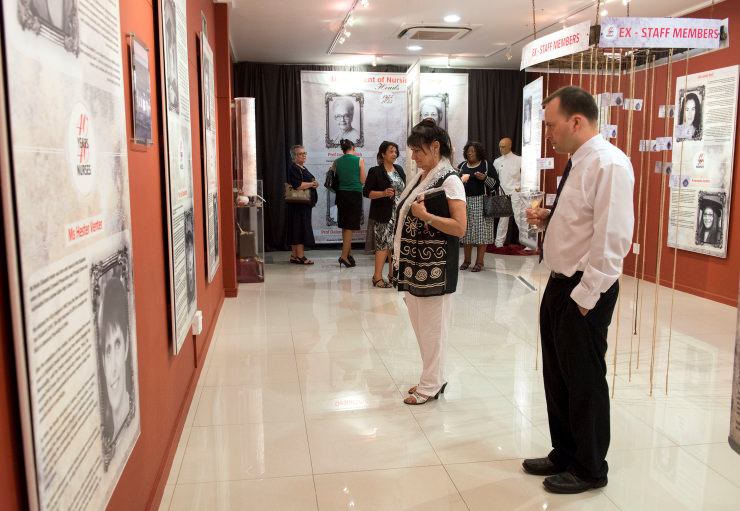 Ms Willie Bouwer and Dr David Morton viewing exhibition
Ms Willie Bouwer and Dr David Morton viewing exhibition
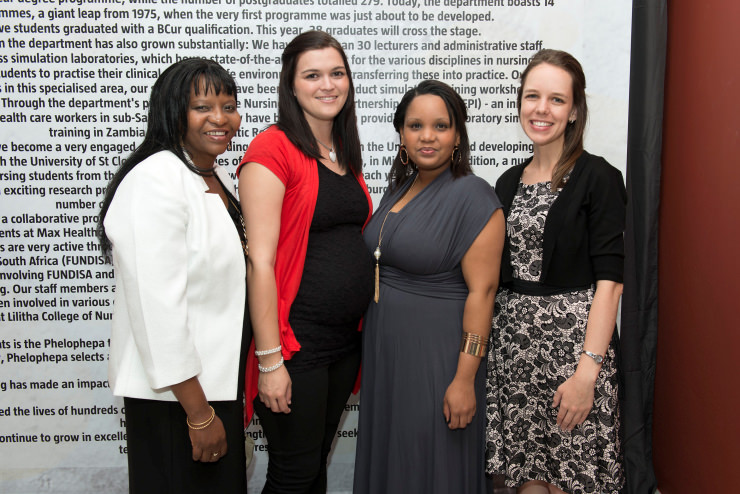 Ms Zoleka Mpompa, Ms Shavaughn Benade, Ms Candice Williams and Ms Lisa Moore
Ms Zoleka Mpompa, Ms Shavaughn Benade, Ms Candice Williams and Ms Lisa Moore
-
In 1975, with just six BCur students and 18 postgraduates, the Department of Nursing Science opened its doors for the first time. In 2015, we proudly celebrate our 40th anniversary and reflect on our many achievements – on a global, national and local level.
We are particularly proud of our growth, not just in student numbers, but also in the number of programmes we offer. In 2014, we had 456 undergraduate students in the BCur degree programme, while the number of postgraduates totalled 279. Today, the department boasts 14 postgraduate programmes, a giant leap from 1975, when the very first programme was just about to be developed.
In 1979, our first five students graduated with a BCur qualification. This year, 38 graduates will cross the stage.
The number of staff members in the department has also grown substantially: We have more than 30 lecturers and administrative staff.
The department boasts world-class simulation laboratories, which house state-of-the-art equipment for the various disciplines in nursing. The simulation laboratories enable students to practise their clinical skills in a safe environment, before transferring these into practice. Owing to their unique knowledge and skills in this specialised area, our staff members have been invited to conduct simulation training workshops both inside and outside our borders. Through the department’s participation in the Nursing Education Partnership Initiative (NEPI) – an initiative tackling the critical shortage of health care workers in sub-Saharan Africa – they have been involved in providing clinical laboratory simulation training in Zambia and the Democratic Republic of Congo.
Over the past 40 years, we have become a very engaged department, building international ties with the United States and developing an annual exchange programme with the University of St Cloud and the Colleges of St Benedict and St John, in Minnesota. In addition, a number of nursing students from three universities in Norway visit our department each year.
We have also embarked on an exciting research project in collaboration with the University of Gothenburg in Sweden, which has yielded a number of articles, and is likely to extend into the future.
Another exciting enterprise is a collaborative project with Life Healthcare South Africa and Max Healthcare in India. Our department’s role includes teaching nursing students at Max Healthcare. Two staff members have already travelled to India – and the visit was a great success.
Nationally, our staff members are very active through the Nursing Education Association (NEA), and are also represented on the Forum of University Nursing Deans in South Africa (FUNDISA). Two staff members were chosen to be trained as lead researchers through the Plume Project, a collaborative project involving FUNDISA and the National Research Foundation (NRF). They have since become Plume Fellows and are undergoing further training. Our staff members also have links to the Academy of Nursing in South Africa (ANSA) and Life Healthcare.
At a local level, staff have been involved in various community engagement activities. For a number of years, we have been involved in the training of nursing educators at Lilitha College of Nursing, building very close ties, and are pleased to see the college growing from strength to strength.
A highlight for our BCur students is the Phelophepa train, which travels deep into the rural areas of South Africa, reaching people desperate for primary health care. Each year, Phelophepa selects a number of our students to assist with the clinical assessment, diagnoses and treatment of patients on the train.
Nelson Mandela University’s Department of Nursing has made an impact on health care education in general, and nursing science, in particular, at a global, national and local level.
We are proud to have touched the lives of hundreds of students over the past 40 years, helping them develop into top quality nurses, with a high work ethic and moral integrity.
The department desires to continue to grow in excellence and build on its strengths, all the time seeking to be innovative and visionary in its teaching, engagement and research.